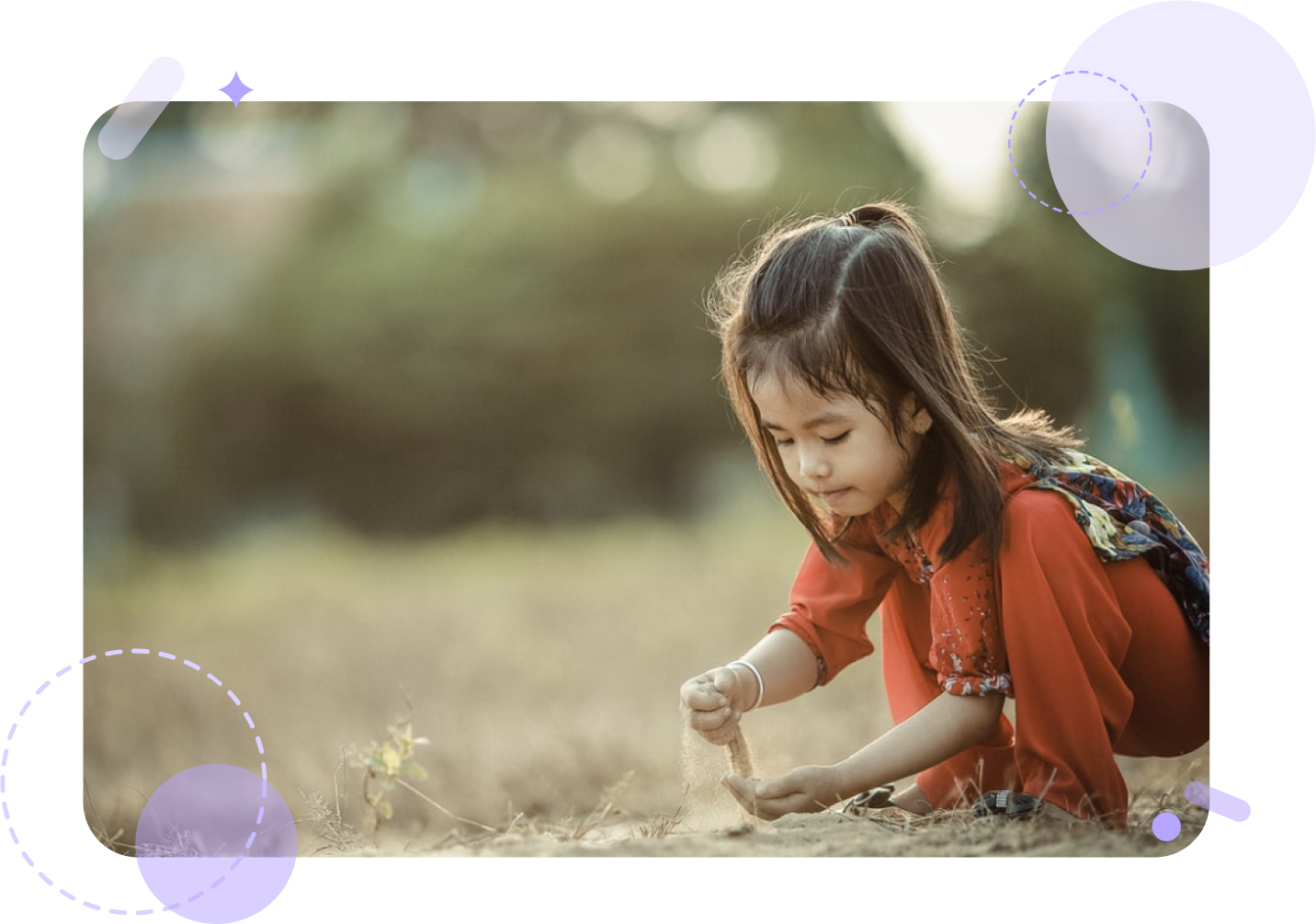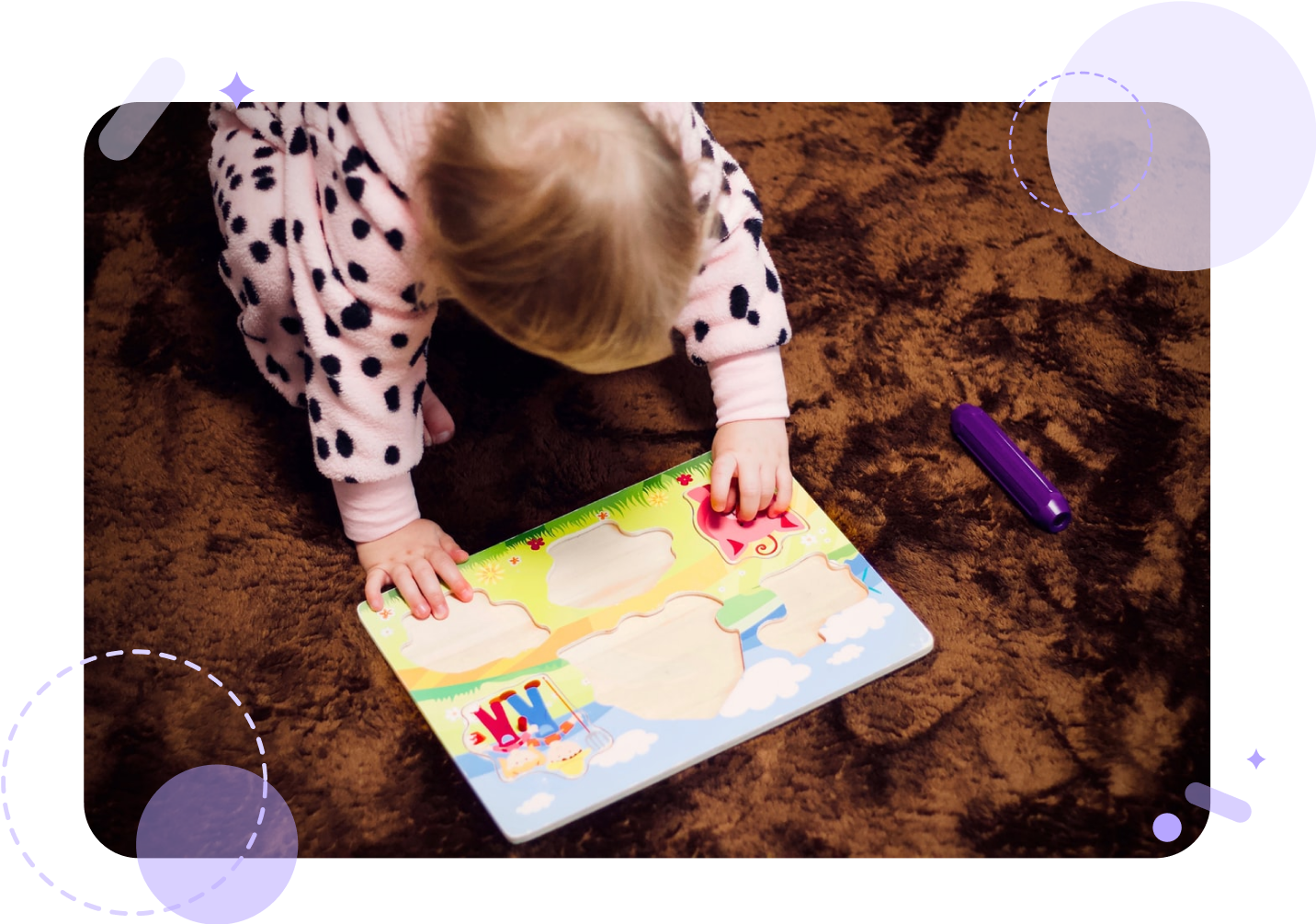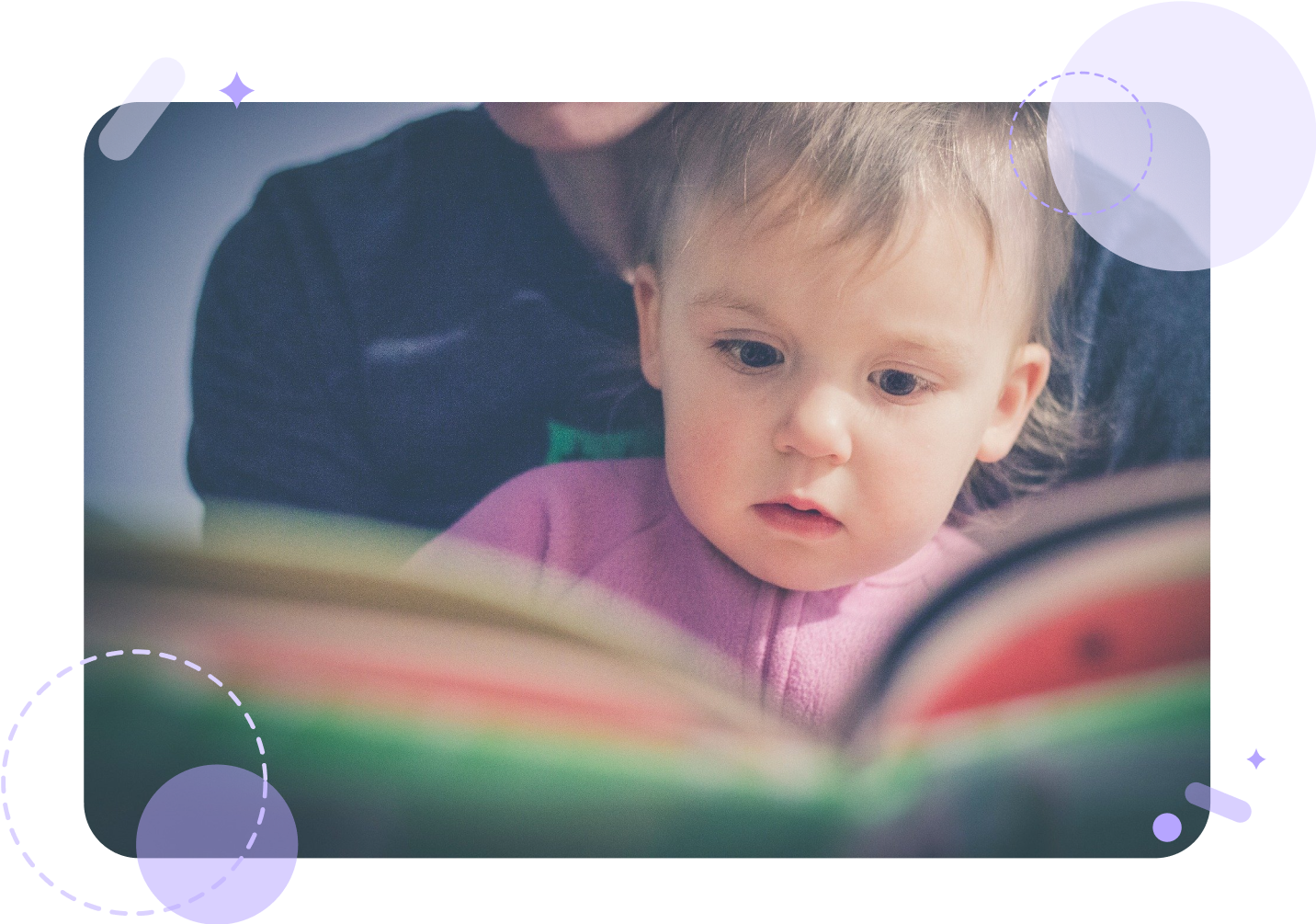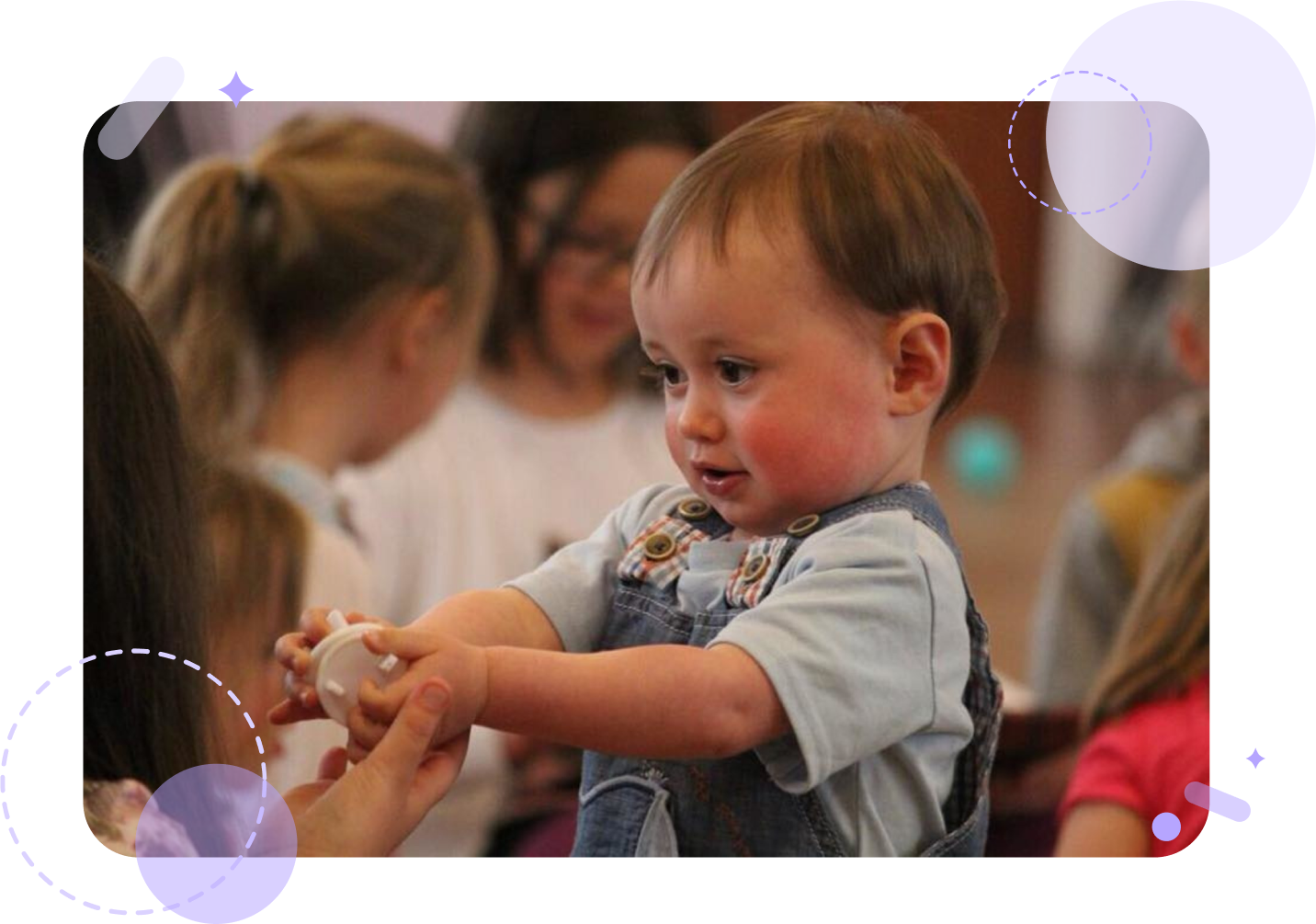
Can you imagine your life without having the ability to imagine? It would be a tough life, as adults use imagination to visualize things, enjoy a book, make plans, and think creatively to produce out of the box ideas.
Imagination is also a developmental milestone that your baby develops in the early years of their life. Just after their first birthday, as they enter toddlerhood, your little one will start to embark upon their imagination journey.
Developmental Timeline
Much like other skills, the ability to imagine and play make-believe also happens incrementally. Let’s look at the developmental timeline of these cognitive skills.
12 to 18 months: During this time, your toddler will play out everyday activities to learn correct object usage. Early examples of pretend play include talking on the phone or “driving” a toy car.
18 to 24 months: Toddlers’ imaginative abilities take a major leap as now they can understand the concept that one thing can “be” another. For example, a pen can turn into a phone or a bench into a car.
24 to 30 months: Children can perform more than one pretend action at a time. For example, they can comb a doll’s hair, pretend to dress her and make her go out to a pretend party.
30 to 36 months: Improved cognitive skills allow children to pretend play without an actual object. For example, they can use their hand as a microphone and perform a pretend concert.
Pretend Play and Language Development
Pretend play is also known as “symbolic play” as it involves using symbols, much like in language. In language, symbols are used to depict our thoughts and ideas. Both language and pretend play consists of the use of symbols. It is interesting to notice that toddlers start playing make-believe simultaneously as their first words emerge between 12 to 18 months.
Encouraging Baby’s Imagination
Using their imagination and performing pretend play is a crucial cognitive milestone in your toddler’s development. Your baby will need plenty of encouragement from you for their budding imagination to truly blossom. One way to encourage your baby’s pretend play is by initiating or participating with them in exciting scenarios with stimulating objects, toys, and actions.
As your baby grows, their imagination will help them do more to engage with their surroundings. They will soon be able to pretend play with other children, take turns, and learn to collaborate. Imagination also helps your baby to develop social skills like empathy and understanding other perspectives. This cognitive skill teaches your baby a lot and eventually integrates into their daily lives.
 Back
Back

